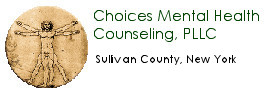Submitted by tomrue on
 Robert Cloninger, M.D. of the the School of Psychiatry at the Washington University of St. Louis originated the “How Spiritual Are You?” quiz which appeared in abbreviated form in a 2004 edition of Time Magazine,1 and also on the website of Michael A. Toth, Ph.D. for use in a graduate Sociology of Religion class at Portland University. [PDF]
Robert Cloninger, M.D. of the the School of Psychiatry at the Washington University of St. Louis originated the “How Spiritual Are You?” quiz which appeared in abbreviated form in a 2004 edition of Time Magazine,1 and also on the website of Michael A. Toth, Ph.D. for use in a graduate Sociology of Religion class at Portland University. [PDF]
The "How Spiritual Are You" test was adapted from the Temperament and Character Inventory, a 240-question personality test developed by Cloninger at Sansone Center for Family Wellness, a psychiatric research center at Washington University. The "self-transcendence" sub-scale reportedly measures "what allows us to have the kind of experience described as religious ecstasy," according to Cloninger.
Interestingly, according to Powerpoint slide-show on Spirituality and Wellness by Douglas Engwall of the Department of Psychology at Central Connecticut State University, "Hamer's idea came from a study on smoking and addiction." Engwell does not identify the study.
Writer Susan B. Price of Rochester questions the underlying construct: "What a leap to go from personality traits (used to sort out factors associated with anorexia nervosa, alcoholism, etc.) to the result to a discipline. The fault may lie with Dean Hamer, the molecular biologist who wrote The God Gene: How Faith Is Hardwired in Our Genes. He's trying to correlate scores on a personality test with gene patterns and then Time Magazine simplifies it even further." 2
Nevertheless, clinical studies seem to support the construct validity of the TCI, on which the "How Spiritual Are You" test is based. Here are a select few:
- Basiaux, P. et al. (2001). Temperment & Character Inventory (TCI) Personality Profile and sub-typing in alcoholic patients: A controlled study, Medical Council on Alcohol, Alcohol and Alcoholism, Vol. 36, No. 6, pp. 584-587. [PDF]
- Cloninger, C.R. (2006). Feeling Good: The Science of Well-Being, Oxford University Press.
- Cloninger, C.R. (2006). Fostering spirituality and well-being in clinical practice, Psychiatric Annals, 36:3, March.
- Cloninger, C.R., Przybeck, T.R., Svrakic D.M., Wetzel R.D. (1994). The Temperament and Character Inventory (TCI): A guide to its development and use. St. Louis, MO: Center for Psychobiology of Personality.
- Cloninger, C.R., Svrakic, D.M., Przybeck T.R. (1993). A psychobiological model of temperament and character. Archives of General Psychiatry, 50:975*90.
- Fassino, S., Amianto, F., Levi, M., Rovera, G.G. (2003). Combining the Rorschach Test and the Temperament Character Inventory: A new perspective on personality assessment, Psychopathology, 36:84-91.
- Hansenne, M., Reggers, J., Pinto, E., Kjiri, K., Ajamier, A., & Ansseau, M. (1999). Temperament and character inventory (TCI) and depression, Journal of Psychiatric Research, 33, Issue 1-2, 31-36, January.
- Hosák, L., Preissb, M., Halířa, M., Čermákovác, E., and Csémyb L. (2004). Temperament and character inventory (TCI) personality profile in metamphetamine abusers: a controlled study, European Psychiatry, 19:4, 193-195, June.
|
“A man may fulfill the object of his existence by asking a question he cannot answer, and attempting a task he cannot achieve.” |
Related Links
The Spirituality In Patient Care: Why, How, When, and What by Harold G. Koenig, M.D., The Templeton Foundation, 2007, reviewed in JAMA, 2002;288:1530-1531, and in How To Get the Best Medical Care: A Guide for the Intelligent Patient and For Their Caring Doctor; also available for purchase as an audiobook. "A ten-session model course curriculum on spirituality and healthcare for medical students and residents is provided, with suggestions on how to adapt it for the training of nurses, social workers, and rehabilitation specialists."
Spiritual Emergencies on this site, by Tom Rue, 8/22/2007, on the boundaries between spiritual ecstasy and psychosis. "It is possible to undergo a profound crisis involving non-ordinary experiences and to perceive it as pathological or psychiatric when in fact it may be more accurately and beneficially defined as a spiritual emergency." -- Stanislov Grof
- 1. Time, October 25, 2004
- 2. Susan B. Price, The Material Girl blog entry of 10/22/2004. See also God Gene in Wikipedia; and The Brain Chemistry of the Buddha: Dean Hamer and the God Gene; on beliefnet.com in which Hamer is quoted, "The God gene refers to the idea that human spirituality has an innate genetic component to it. It doesn’t mean that there’s one gene that makes people believe in God, but it refers to the fact that humans inherit a predisposition to be spiritual -- to reach out and look for a higher being."
- tomrue's blog
- Log in to post comments
